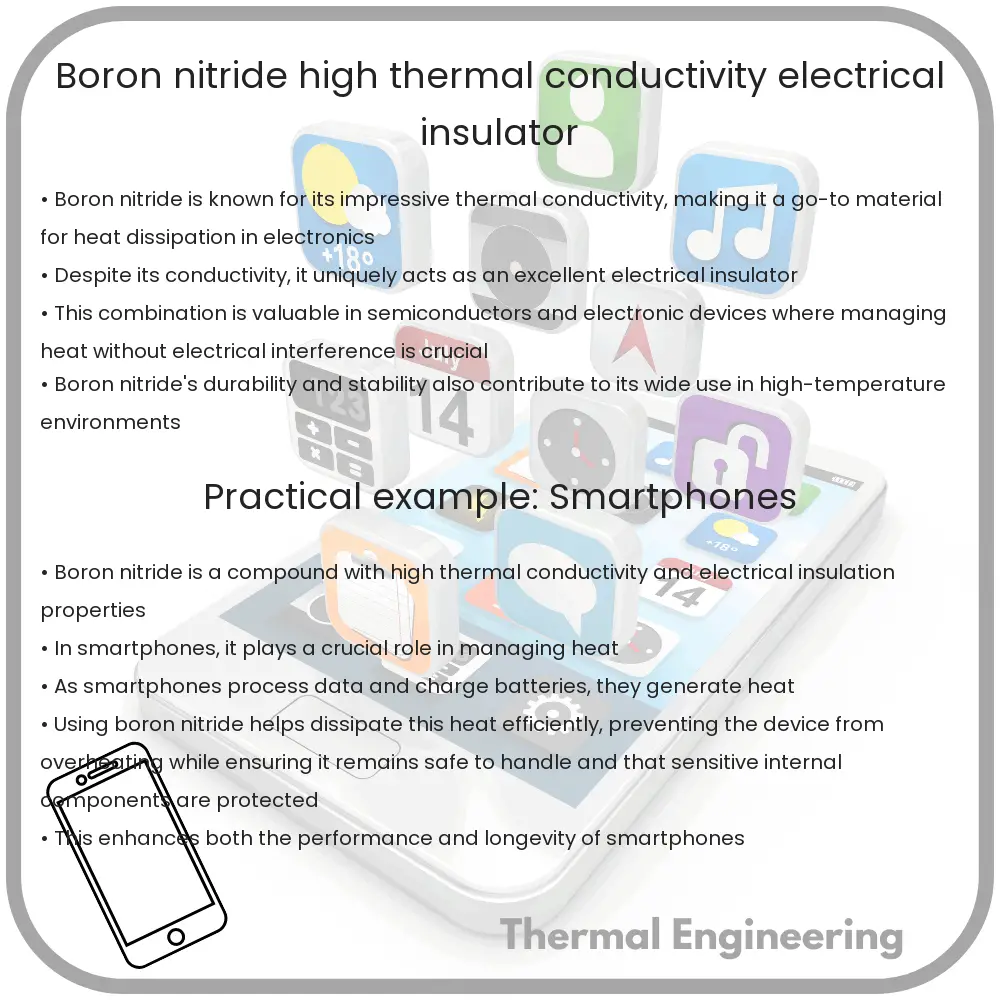Explore the versatile properties of Boron Nitride (BN), a high-performance ceramic with superb thermal conductivity and electrical insulation.

The Remarkable Properties of Boron Nitride
Boron nitride (BN) is an advanced ceramic material that offers a unique combination of chemical, mechanical, and thermal properties. It is structurally similar to carbon, sharing the same types of lattice structures including hexagonal and cubic forms, akin to graphite and diamond, respectively. One of the key characteristics of boron nitride is its high thermal conductivity combined with excellent electrical insulating properties. This makes boron nitride an invaluable material in various high-performance applications.
High Thermal Conductivity
Thermal conductivity is a measure of a material’s ability to conduct heat. Boron nitride is notable for its high thermal conductivity, particularly in its cubic form, which is often compared to diamond in terms of thermal efficiency. The hexagonal form (h-BN), resembling graphite, also exhibits very good thermal conductivity, far superior to most insulating materials. This property is extremely beneficial for applications that require rapid heat dissipation, such as in heat sinks, power electronics, and high-temperature equipment.
- Hexagonal Boron Nitride (h-BN): Typically shows thermal conductivities in the range of 20-600 W/mK, depending on purity and orientation.
- Cubic Boron Nitride (c-BN): Boasts one of the highest thermal conductivities of all materials, up to 1300 W/mK, rivaling synthetic diamond.
Electrical Insulator
Despite its high thermal conductivity, boron nitride is an excellent electrical insulator. This property makes it particularly valuable in the electronics industry, where it is essential to manage heat without conducting electricity. In semiconductor devices, h-BN can be used as a dielectric layer or as a substrate to ensure effective insulation between electrically active parts while facilitating heat dissipation.
- Breakdown Voltage: Boron nitride exhibits a high electrical breakdown voltage, typically over 500 V/mil.
- Dielectric Strength: It has a very high dielectric strength, around 50-700 kV/mm, making it an ideal choice for high-power applications.
Applications of Boron Nitride
The unique properties of boron nitride have led to its use in a variety of demanding applications:
- Electronics: As an insulating layer in transistors, ICs, and for heat dissipation in power electronics.
- High-Temperature Equipment: Used in components that must resist thermal shock and maintain integrity under high thermal stress.
- Industrial Coatings: Applied as a protective coating due to its resistance to heat and chemical corrosion.
Conclusion
Boron nitride’s combination of high thermal conductivity with great electrical insulation capabilities makes it an attractive material for the future of high-performance materials. Its versatile applications highlight its importance in advancing current technologies, opening avenues for new innovations in electronics, aerospace, and beyond.
Understanding and harnessing the potential of boron nitride will continue to be a critical area of research as technologies evolve and demands for more efficient thermal management and insulation solutions grow.